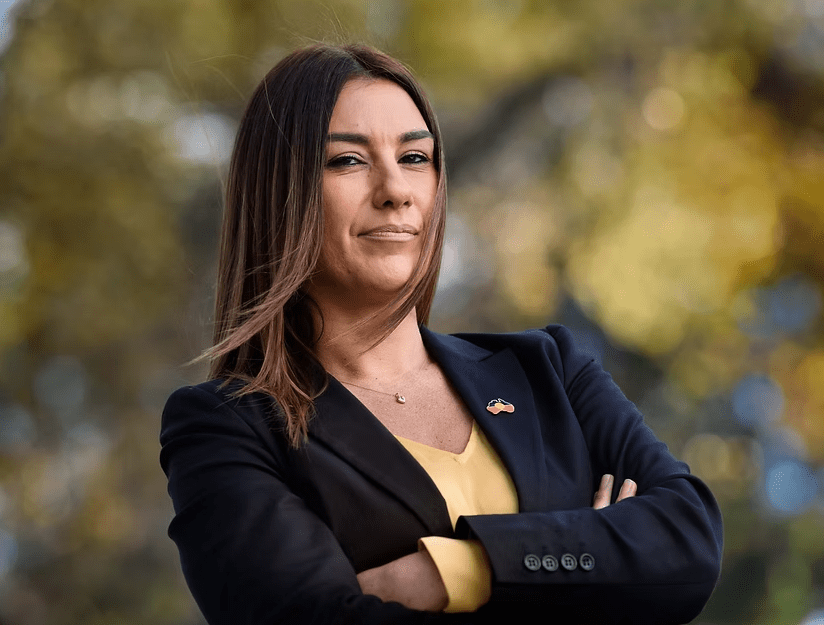Independent Senator Lidia Thorpe has urged Australians to reject both major parties at the upcoming May 3, 2025 federal election, arguing that a Labor minority government with a strong crossbench is the only way to hold Anthony Albanese accountable and drive real change.
Thorpe, a Gunnai, Gunditjmara, and Djab Wurrung woman and independent Victorian Senator, issued a scathing assessment of Labor’s record in government, accusing Albanese of abandoning Indigenous affairs, worsening the climate crisis, and failing to address the cost-of-living crisis.
“After one term of the Albanese Labor government, we all feel deeply let down. Albanese abandoned Truth and Treaty, fuelled the climate crisis by expanding coal and gas, failed to protect Country and cultural heritage, and created harsh refugee deportation powers. He ignored calls to tackle gambling ads, banned social media for kids, gutted the NDIS, and passed undemocratic electoral reforms. He refused to stand up to Israel and the US on the genocide in Gaza.”
Rejecting Both Major Parties
Thorpe warned that both Labor and the Coalition prioritise corporate donors over everyday Australians, arguing that neither can be trusted to govern in the best interests of the people.
“Meanwhile, he [Albanese] gave tax cuts to the rich and politicians while doing nothing to stop price gouging, skyrocketing rents, or the cost-of-living crisis. Time and again, Albanese has caved to the Coalition, proving Labor is more willing to listen to Peter Dutton than the community, the crossbench, or even Labor’s own members.”
While rejecting Labor, Thorpe also made it clear that a Dutton-led government would be a disaster, warning that the Liberal leader would accelerate gas extraction, slash jobs, and strengthen ties with Donald Trump.
“If elected, Dutton has said he will massively increase climate-destroying gas extraction that will decimate Country and water, he’ll cut thousands of jobs, buddy up to Trump, and continue his racist attacks on First Peoples.”

Gabrielle de Vietri: Labor Has “Lost Its Way”
Victorian Greens MP Gabrielle de Vietri has spent the past two years inside the political machine, and what she has witnessed has left her deeply disillusioned. In an exclusive sit-down interview, de Vietri delivered a scathing critique of Labor’s transformation, the federal election’s empty political theatre, and the alarming crackdown on protest rights in Victoria.
De Vietri does not mince words when it comes to the state of Australian politics.
“Having been in parliament now for two years, I am disgusted and disappointed by a political system that breeds cheap engagement for continued power. Both major parties—Liberals and Labor—are shameless in the way they make policies and decisions just to enable their own pursuit of power at any cost.”
Her observations cut to the heart of the growing public disillusionment with mainstream politics. Once seen as the champion of workers’ rights and progressive policies, the Australian Labor Party is, in her view, unrecognisable.
“Labor is not the party of Gough Whitlam anymore. They’re tearing down public housing, selling off public land to private developers, attacking workers’ compensation, and prioritising corporate donors over their own members. They have completely lost their way.”

The Victorian Government’s War on Protest
For decades, protest has been a pillar of democracy, the force behind social progress from workers’ rights to Indigenous justice. Yet, de Vietri points out that the Victorian government is now seeking to curtail those very freedoms.
“The Labor government is trying to criminalise protest because they know how powerful it is. They are banning face coverings at protests, outlawing glue, ropes, and chains used in environmental activism, and forcing multicultural organisations to sign ‘social cohesion pledges’ to access funding. This is coercion disguised as policy.”
She draws a striking historical parallel:
“The very same Labor government that unveiled a statue of Zelda D’Aprano—who chained herself to a building in protest for equal pay—would today be criminalising her for bringing a chain to a demonstration.”
De Vietri warns that these laws are not just about suppressing one movement but setting a dangerous precedent.
“If they can silence pro-Palestinian protesters today, they can silence workers, Indigenous activists, and climate advocates tomorrow. Every social movement that has made real change has done so through protest—Labor itself was built on that history, and now they are betraying it.”
A Broken System
Beyond the protest crackdown, de Vietri paints a grim picture of an entrenched political culture that prioritises power over principle.
“The institutionalised bullying and intimidation in parliament is just part of the course. When I speak out against the genocide of Palestinian people, against the demolition of public housing, or against corporate greed, I am met with jeers and abuse from 84 members of parliament across party lines.”
It is a system, she argues, designed to exclude anyone who challenges the status quo.
“No wonder we don’t have more women and people of colour putting their hands up for politics—it’s an intimidating, oppressive, colonial structure.”
The Case for a Strong Crossbench
Despite the bleak realities of party politics, both Thorpe and de Vietri remain steadfast in their belief that change is possible—but only if the two-party stranglehold is broken.
“The major parties have become indistinguishable,” de Vietri says. “Labor and Liberal are listening to their corporate donors and lobbyists, not their voters. They reinforce the two-party system with laws that block minor parties and independents from gaining ground.”
Thorpe agrees, arguing that a strong crossbench is crucial.
“When the Greens hold the balance of power, we force the government to negotiate. We push for action on climate change, affordable housing, and social justice. We challenge the corporate stranglehold on politics.”
The Road Ahead
For de Vietri, the message is clear: Australians cannot afford to disengage.
“Labor has abandoned its principles, but that doesn’t mean we stop fighting. We need people to get involved, to push back against these oppressive laws, and to demand better from those in power.”
As she continues her work inside parliament, she remains a fierce advocate for change—undaunted by the hostility she faces.
“This system wasn’t built for people like me. But that’s exactly why I’m here.”
With the election campaign now officially underway, Thorpe and de Vietri’s message signals an aggressive push to reshape Australia’s political landscape, positioning progressive independents and minor parties as the key to holding a future government accountable.
Australians will head to the polls on May 3 2025 to decide the nation’s future.

